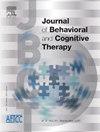Efficacy of acceptance and commitment therapy (ACT) as a stand-alone treatment for bipolar disorder: protocol for a randomized controlled trial
IF 1.6
Q3 PSYCHIATRY
引用次数: 0
Abstract
Background
Bipolar Disorder (BD) involves recurrent episodes of mania/hypomania and depression, causing significant impairment in quality of life, functioning, and sleep. Although Psychoeducation, Cognitive Behavioral Therapy, and Family-Focused Therapy show efficacy, especially for recurrence of new episodes, novel interventions targeting bipolar depression and subthreshold symptoms remain necessary. Acceptance and Commitment Therapy (ACT), with effectiveness demonstrated across multiple psychiatric disorders, may improve depressive symptoms, quality of life, and functioning in BD.
Objectives
This study examines ACT’s impact as a stand-alone intervention, alongside usual pharmacotherapy, on depressive symptoms in BD. Additional targets include quality of life, functioning, sleep quality, and psychological flexibility.
Methods
This randomized controlled trial will compare ACT plus usual treatment to usual treatment alone in adults aged 18–65 years with BD, experiencing a current depressive episode or subthreshold depression. The ACT group will undergo 12 weekly sessions. Measurements (baseline, post, 6, 9 and 12 months) will encompass depression symptoms (primary outcome), and functioning, quality of life, sleep quality, and psychological flexibility as secondaries. Analyses using linear mixed models or generalized estimating equations (GEE) will assess group differences over time.
Discussion
If ACT reduces depressive symptoms and improves related outcomes, it could serve as a valuable adjunct treatment min BD management. This protocol describes the study framework, assessment tools, and intervention approach, expanding understanding of strategies for addressing depressive phases and subthreshold symptoms in BD.
接受和承诺疗法(ACT)作为双相情感障碍独立治疗的疗效:一项随机对照试验方案
背景双相情感障碍(BD)包括反复发作的躁狂/轻躁狂和抑郁,导致生活质量、功能和睡眠的显著损害。尽管心理教育、认知行为疗法和以家庭为中心的疗法显示出疗效,特别是对新发作的复发,但针对双相抑郁和阈下症状的新干预措施仍然是必要的。接受和承诺疗法(ACT)在多种精神疾病中都有疗效,可以改善双相障碍患者的抑郁症状、生活质量和功能。目的本研究考察ACT作为一种独立干预手段,与常规药物治疗一起,对双相障碍患者抑郁症状的影响。其他目标包括生活质量、功能、睡眠质量和心理灵活性。方法:本随机对照试验将比较ACT +常规治疗与常规治疗单独治疗18-65岁双相障碍患者,当前经历抑郁发作或阈下抑郁症。ACT小组每周将进行12次会议。测量(基线、后、6、9和12个月)将包括抑郁症状(主要结果),功能、生活质量、睡眠质量和心理灵活性作为次要结果。使用线性混合模型或广义估计方程(GEE)的分析将评估组间随时间的差异。如果ACT能减轻抑郁症状并改善相关结果,它可以作为双相障碍治疗中有价值的辅助治疗。本研究方案描述了研究框架、评估工具和干预方法,扩大了对双相障碍抑郁期和阈下症状处理策略的理解。
本文章由计算机程序翻译,如有差异,请以英文原文为准。
求助全文
约1分钟内获得全文
求助全文
来源期刊

Journal of Behavioral and Cognitive Therapy
Psychology-Clinical Psychology
CiteScore
3.30
自引率
0.00%
发文量
38
审稿时长
60 days
 求助内容:
求助内容: 应助结果提醒方式:
应助结果提醒方式:


